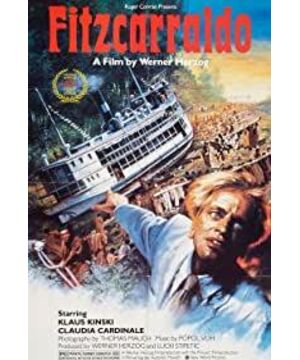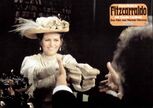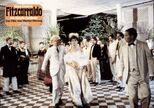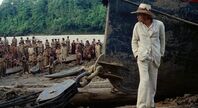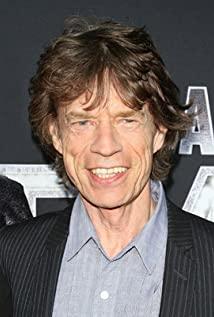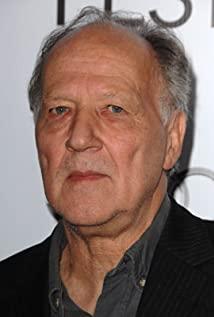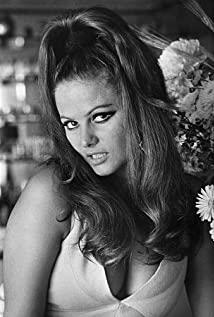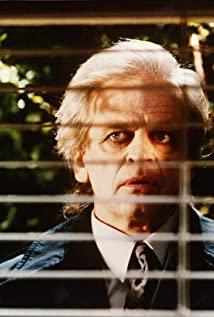This is where the story unfolds.
To build an opera house requires money; to renovate and maintain it, you need money; to invite big stars, you have to ask for money. As long as Fitzgerald wants to realize his dream, he must get money. For this reason, he had a whim to build a railway through the jungle, which ended in bankruptcy and failed, and was ridiculed by many people.
He still makes ice in the rainforest, but it never sells. And at a party where he lobbied tycoons for investment, he was met with the expected cold water.
Persevering and not giving up his dream, Fitzgerald finally set his sights on the most profitable rubber gathering industry. But most of the local resources were carved up by the original developers, so he could only go to the upper reaches of the Amazon to realize his ambitious ambitions.
He has always supported his girlfriend Molly, and took out all his belongings to support him in this adventure.
The ship was built, the crew was recruited, and to the cheers of the people on the shore, the ship set off.
When approaching the end of the river, I met the local Indians, but I could only hear the rumbling of their drums and not see them. The next day, the cowardly crew abandoned the ship, leaving only the captain, the mechanic, the cook, and Fitzgerald.
At this time, Fitzgerald said, "It's time for Crosso to go out," and the sound of the Indians' gongs and drums disappeared. Seeing this, at first I thought it was the same scene as "Dancing With Wolves": one was coffee and the other was an opera.
Only later did I find out that the Indians here just believed in a myth: there will be a God who drives a white boat and sings to save them. And then their peaceful life, it is the role played by this legend.
But even as the Indians began to help Fitzgerald begin the nearly impossible task of transporting the giant steamer from land to another river, their arrival still brought uncertainty and uncertainty. I don't want to see the image of the stigmatized Indians: savage, uncivilized, full of killing and malicious destruction - in real history, they have always been weak and in a position of being hurt. So I kept sweating while watching.
When the boat was successfully transported to the other end of the river, when they happily reveled in wine, when they fell into a state of deep sleep, the Indian chief suddenly unbuckled the boat and the boat went down the water. It turned out to be in the rapids that no one can cross.
Did they go so hard just to drown Fitzgerald and the others? But these Indians are all on board! Is it for the sake of crossing the rapids area, that's why you help so hard? Then why go through it? The film never explained. Although this is not the point, it is the question that always hangs in my mind. They disappear at the end of the film just as suddenly as they come.
In the end, they passed by safely, but at the same time they announced the bankruptcy of Fitzgerald's plan again. He had to sell the boat.
But, this idealist, did another crazy thing, he used the money from selling the boat, he brought in the band, brought in Crosso, bought the best cigars and tuxedos, and even the opera house a chair.
At the end of the film, on the devastated ship, Fitzgerald is contentedly smoking a cigar, enjoying the opera brought by the first-class performers, looking high-spirited, it seems that he really succeeded.
Molly roared with joy in the crowd who came to greet her, just wondering if Molly knew she was welcoming a failed idealist.
The film ended in such a seemingly good cheer, what about the future? Will Fitzgerald remain stubbornly clinging to his ideals? Will Molly, who has nothing left, support her boyfriend as always? If he finally got the opera house up and running, what market would there be for the elegant opera sung from the woods, in the face of a large number of scantily clad locals and colonists who only knew how to play? Thus, the failure of the idealist Fitzgerald, sooner or later, is almost inevitable.
From this, I thought of a Taiwanese movie "The Diary of Cycling Around the Island" (directed by Chen Huaien), which was about a hearing-impaired college student Ming Xiang who rode a bicycle to travel around Taiwan for seven days. In the film, a lot of beautiful and peaceful Taiwan scenery, accompanied by Ming Xiang's bicycle, are shown in front of us one by one. During his journey, he met a film crew that captured the wind of the Pacific Ocean and a boy-girl love story; he met a young girl from Lithuania who said her country had no mountains; he met a man who rode like him The boy who went to visit his mother by bicycle, the two walked together for a long time; when he was lonely during the journey, he played the guitar by the seaside, accompanied by the moonlight and the sound of the tide, and slept on the spot; when he was hungry, he rented a tour bus with him. The female factory worker who traveled while protesting the closure of the factory shared a lunch box; when he was tired, he stopped at his grandparents' house, where the time seemed to have never changed. warmth.
Comparatively speaking, this story can move me more: First, I have always dreamed of riding a bicycle to travel, but I haven’t done it for a long time. I always make up all kinds of excuses for myself, such as “a girl It’s not safe for people to go out”, “Maybe it won’t last” and so on. But Mingxiang, who is deaf, gave me a lot of courage. If he can, why can't I? Second, a few lines in the film are deeply imprinted in my mind: "Some things, if you don't do them now, you won't do them in a lifetime!", "I hope to do one thing in my early 20s until I am 80 years old. Even when you wake up, you will smile.”
It was these two sentences and Ming Xiang's back view of riding a bicycle bravely in the heavy rain, which supported me to ride 220 kilometers to the Qingxi Mausoleum. Fulfilled a little personal wish. Until now, if there is something I will hesitate to do, as long as I think of the phrase "something, if you don't do it now, you will never do it in your life", you will have the courage and perseverance to let it go.
This is by far the most empowering movie for me.
Compared to Ming Xiang, Fitzgerald was more ambitious and more utopian. Although he is also doing one thing with all his strength, and even though he will never give up until the goal is achieved, his problem is not in the method, but in the starting point of everything he does - that "purpose" is too ideal It's so docile that he probably didn't even think about whether it was really feasible in real life, and went on a drastic path.
As an ordinary pragmatist, I must vulgarly admit that I like Fitzgerald's passion, his bravery and intelligence in his adventures, and his almost stubborn adherence to his ideals, but that's about it. so far.
I'm a mortal, and I'd much rather let my efforts be rewarded than act madly for a fantasy.
I don't know if the director is looking to criticize, is it a person like me.
View more about Fitzcarraldo reviews


